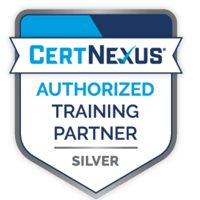In today’s corporate landscape, human resources (HR) departments play a pivotal role in maintaining fair and equitable workplace practices. However, despite efforts to promote diversity, inclusion, and equal opportunity, companies may still find themselves embroiled in employment discrimination lawsuits. These legal battles can be not only financially draining but also damaging to a company’s reputation. To mitigate the risk of such lawsuits, HR professionals must be vigilant in identifying and addressing potential discriminatory practices. Here are five common HR mistakes that could land a company in hot water:
- Inadequate Policies and Training Programs:
One of the primary responsibilities of HR is to establish comprehensive policies and procedures that promote a discrimination-free workplace. However, failure to develop and communicate clear policies regarding equal employment opportunity (EEO) can leave the door open for discrimination claims. Additionally, insufficient training programs for employees and managers on topics such as unconscious bias, harassment prevention, and diversity awareness can perpetuate discriminatory behavior within the organization.
To mitigate this risk, HR should regularly review and update company policies to align with current legal standards and provide mandatory training sessions to educate employees and managers on their rights and responsibilities regarding EEO laws.
- Biased Hiring and Promotion Practices:
Discrimination often begins at the recruitment and promotion stages, where unconscious biases can influence decision-making processes. HR professionals must be vigilant in ensuring that hiring and promotion decisions are based solely on job-related criteria and not influenced by factors such as race, gender, age, or disability.
Implementing structured interview processes, conducting diverse candidate searches, and establishing objective criteria for evaluating candidates can help minimize the risk of biased decision-making. Additionally, HR should regularly audit hiring and promotion data to identify any patterns of disparate treatment or underrepresentation among protected groups.
- Failure to Accommodate Employees with Disabilities:
Under the Americans with Disabilities Act (ADA), employers are required to provide reasonable accommodations to qualified individuals with disabilities to enable them to perform essential job functions. However, failure to engage in the interactive process or provide necessary accommodations can result in allegations of disability discrimination.
HR professionals should proactively communicate with employees about their accommodation needs and work collaboratively to identify appropriate solutions. Additionally, training managers on ADA requirements and best practices for accommodating employees with disabilities can help prevent potential legal liabilities.
- Retaliation Against Whistleblowers:
Employees who report instances of discrimination, harassment, or other unlawful conduct are protected from retaliation under various federal and state laws. Nevertheless, some companies may engage in retaliatory actions, such as termination, demotion, or harassment, against whistleblowers in an attempt to silence them.
HR plays a critical role in safeguarding against retaliation by promptly investigating complaints, maintaining confidentiality, and taking appropriate disciplinary action against perpetrators. Additionally, HR should ensure that anti-retaliation policies are clearly communicated to all employees and managers and provide avenues for reporting concerns without fear of reprisal.
- Hostile Work Environment:
A hostile work environment characterized by pervasive harassment, intimidation, or offensive conduct can create a toxic atmosphere for employees and expose the company to liability for discrimination. HR must promptly address complaints of harassment or discrimination and take proactive measures to foster a respectful and inclusive workplace culture.
This includes conducting thorough investigations, imposing disciplinary action when necessary, and providing training to prevent future incidents. Additionally, HR should encourage open communication channels and establish support systems for employees who experience harassment or discrimination.
In conclusion, HR departments play a crucial role in safeguarding against employment discrimination lawsuits by implementing proactive measures to promote diversity, inclusion, and equal opportunity in the workplace. By addressing potential HR mistakes and fostering a culture of compliance and respect, companies can minimize legal risks and uphold their commitment to fairness and equity.
Mitigating Employment Lawsuit Risks: HR Outsourcing vs. In-House HR
Navigating the complex landscape of employment laws and regulations while minimizing the risk of lawsuits is a significant challenge for businesses. Whether opting for in-house HR departments or outsourcing HR functions to external firms, both approaches offer distinct advantages in mitigating the risk of employment lawsuits.
HR Outsourcing Firms:
Outsourcing HR functions to specialized firms can provide companies with access to expertise and resources dedicated solely to HR management. These firms often have seasoned professionals with extensive knowledge of employment laws and regulations, allowing them to stay abreast of legal developments and ensure compliance.
One of the key ways HR outsourcing firms mitigate the risk of employment lawsuits is through their specialized focus on HR functions. By leveraging their expertise, outsourcing firms can help companies develop and implement robust policies and procedures tailored to meet legal requirements and industry best practices. This includes drafting employee handbooks, conducting compliance audits, and providing ongoing training to employees and managers on relevant legal issues.
Additionally, HR outsourcing firms often offer risk management services, such as legal consultation and assistance with dispute resolution. In the event of a legal dispute or employee complaint, these firms can provide guidance on navigating the legal process, conducting thorough investigations, and implementing corrective actions to mitigate further risk.
In-House HR Departments:
While outsourcing HR functions can offer certain advantages, many companies opt to maintain in-house HR departments to retain control over their HR processes and culture. In-house HR professionals are deeply integrated into the company’s operations and are well-positioned to understand its unique needs and challenges.
In-house HR departments can mitigate the risk of employment lawsuits by fostering a culture of compliance and accountability within the organization. This includes developing and enforcing company policies, providing regular training on legal requirements, and implementing proactive measures to prevent issues from escalating into legal disputes.
Moreover, in-house HR departments can facilitate effective communication and collaboration between employees, managers, and executives, thereby reducing the likelihood of misunderstandings or conflicts that could lead to litigation.
In conclusion, both HR outsourcing firms and in-house HR departments play vital roles in mitigating the risk of employment lawsuits for companies. While outsourcing firms offer specialized expertise and resources, in-house HR departments provide deep integration and understanding of the company’s culture and operations. Ultimately, the choice between outsourcing and in-house HR depends on the company’s unique needs, resources, and strategic objectives.
The importance of proactive measures in fostering a compliant and legally sound workplace environment.
Here’s how our services in drafting employee handbooks, conducting compliance audits, and providing ongoing training contribute to reducing the risk of lawsuits for our clients:
Drafting Employee Handbooks:
Our team of HR experts collaborates closely with each client to craft comprehensive and customized employee handbooks tailored to their specific industry, organizational culture, and legal requirements. These handbooks serve as a cornerstone for establishing clear policies, procedures, and expectations for employees, thereby minimizing ambiguity and reducing the likelihood of misunderstandings or disputes. By outlining guidelines related to equal employment opportunity, anti-discrimination, harassment prevention, and other pertinent legal issues, our meticulously drafted handbooks help mitigate the risk of lawsuits by ensuring that employees understand their rights and responsibilities.
Conducting Compliance Audits:
We conduct thorough compliance audits of our clients’ HR practices, policies, and procedures to identify areas of potential risk and non-compliance with federal, state, and local employment laws and regulations. Our audits encompass a comprehensive review of recruitment and hiring processes, employee classifications, wage and hour practices, performance management systems, and termination procedures. By identifying and addressing compliance gaps proactively, we help our clients rectify any deficiencies before they escalate into legal liabilities. Our compliance audits not only mitigate the risk of lawsuits but also demonstrate our commitment to promoting ethical business practices and regulatory adherence.
Providing Ongoing Training:
Our proactive approach to risk mitigation extends to providing ongoing training and development programs for both employees and managers on relevant legal issues and best practices. Through interactive workshops, seminars, and online training modules, we educate employees and managers on topics such as diversity and inclusion, harassment prevention, ADA accommodations, and workplace safety. By fostering a culture of compliance and accountability, our training initiatives empower employees to recognize and address potential legal risks proactively, thereby reducing the likelihood of lawsuits stemming from inadvertent violations or misconduct. Additionally, our training programs equip managers with the necessary skills and knowledge to handle employee relations issues effectively, resolve conflicts amicably, and enforce company policies consistently.
In summary, our comprehensive approach to drafting employee handbooks, conducting compliance audits, and providing ongoing training enables us to mitigate the risk of employment lawsuits for our clients effectively. By proactively addressing compliance issues, promoting awareness of legal obligations, and fostering a culture of compliance, we help our clients minimize legal liabilities and safeguard their reputation and financial stability.













